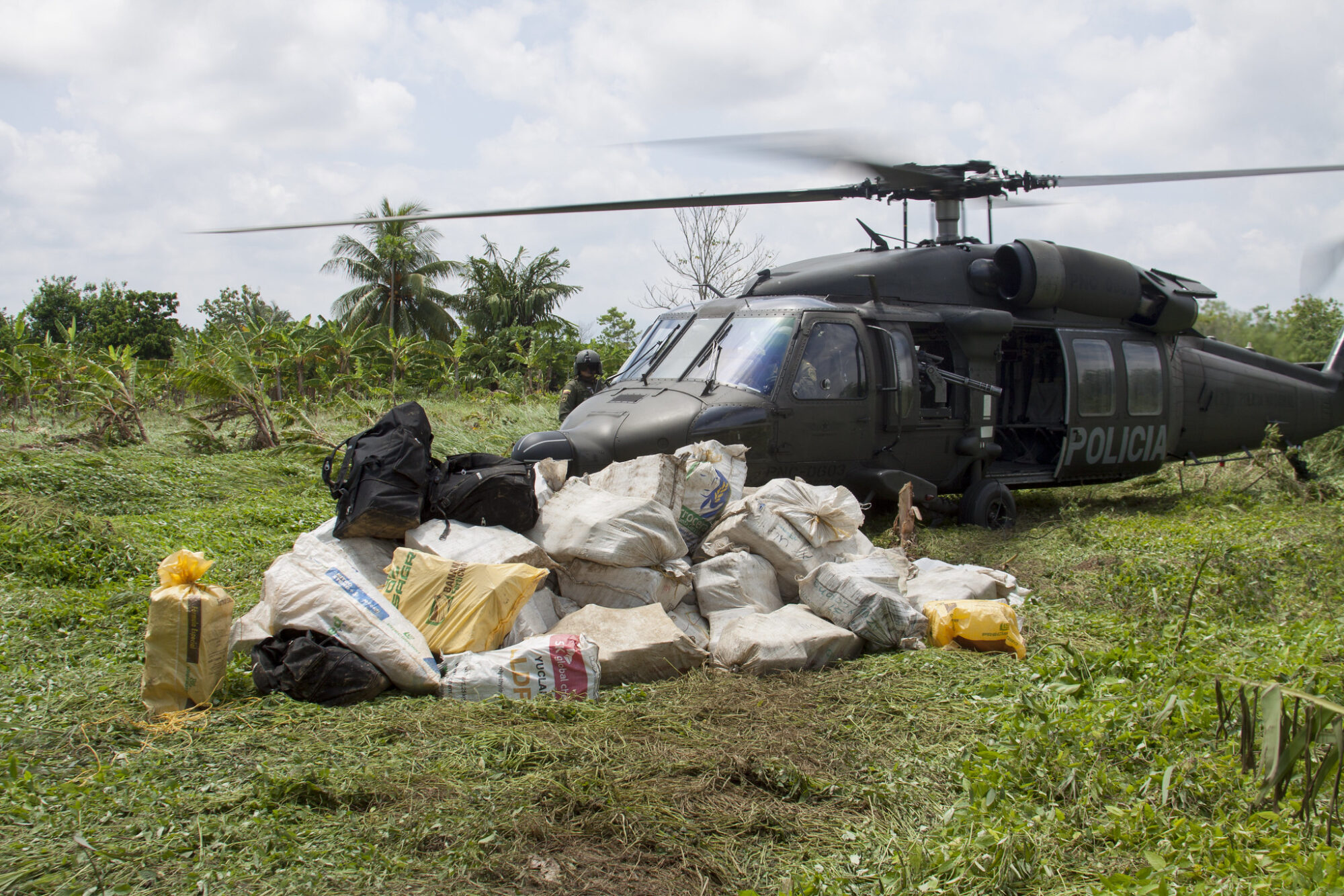Latin America has been dealing with a severe drug problem for over 50 years. The economy is poisoned by illegal drug production and exportation. After the undeniable failure of the so-called “war on drugs”, newly elected leaders of Latin America struggle to find new ways of eradicating the drug epidemic.
Gang violence, corrupted elites and public health concerns : drugs seem to be the root of all evil in Latin America. This illegal yet flourishing business generates approximately 250 billion dollars ($250bn) in the world, according to an estimation by the United Nations Office against Drug and Crime (UNODC). This is more than Colombia’s GDP… and Colombia is the first cocaine producer. According to The Economist, drug production and trafficking are, now more than ever, a growing problem in the area. Despite the governments’ attempts to fight drugs in their country, the issue is not going away. The war on drugs has failed. Today, latin-american leaders are trying new methods to tackle the issue on their own land – but what is the most efficient approach ?
“Guns Won’t Solve The Drug Problem”
Since the beginning, the main solution to the drug problem has been the destruction of coca crops in Peru, Bolivia, and Colombia – the only three countries that grow the infamous coca leaf. Let’s take a look at the various ways leaders of today choose to face the matter of drugs.
In El Salvador, president Nayib Bukele’s method of choice is a total repression of gangs (maras), that are often linked with drug-trafficking, in order to completely eradicate the violence plaguing the country. He conducted mass arrests and created a “mega-prison” reserved for gangsters, which welcomed its first prisoners on February 23, 2023. Bukele’s radical approach proved extremely efficient, nevertheless, he received backlash for his authoritarian and unorthodox method.
On the opposite end of the spectrum, Colombia’s left-wing president Gustavo Petro decided to adopt a more peaceful strategy. After 40 years of military action to stop drugs, colombian cartels are still thriving. Consequently, Petro’s credo is that “guns won’t solve the drug problem”. The president is even open to decriminalisation. He is very firm in his fight for total peace with the cartels, and wants to change the narrative of the war on drugs established by his predecessors.
Beyond punishing drug dealers, public forces aim to get ahold of the cocaine before it gets sold and leaves the continent… Recently, Ecuador kickstarted a new technique to get rid of the cocaine seized by the police : destroying the substance by mixing it with cement, to prevent its reinsertion on the illicit market.
When the United States gets involved
The role of the United States has been prominent in the matter since Ronald Reagan declared the “war on drugs” in 1986 – which didn’t achieve the expected results. But why is this country so involved in the process of eradicating drugs in Latin America ? The main goal of this intervention is to reduce drug use in the United States, to put an end to the addiction epidemic crippling the country. Indeed, because of its vicinity to Mexico, the United States is one of the most coveted markets for all types of drugs. The most recent threat is fentanyl, an opioid 50 times stronger than heroin.
However, the intervention of the United States in Latin America is often ill-received. On the 9th of March, Mexican president López Obrador accused American legislators to be “opportunists” because of their lack of real action to fight the drug epidemic (especially fentanyl). According to him, the United States’ military response against cartels is not the solution : they should focus more on the causes that make young people turn to drugs. Mexico’s obvious break away from the United States sets a precedent for other Latin American countries that might want to deal with the drug problem on their own.
Regardless, as recently as last week, near Mexico City, a teenage boy nicknamed “El Chapito” was arrested for the drug-related killing of eight people. When will it end ?
Rosanna Airiau
Sources :
Fentanilo, la batalla fallida de Estados Unidos en México | La Vespertina | Podcasts | EL PAÍS
La lucha de Petro | Opinión | EL PAÍS
Lutte contre les drogues | Sciences Po Observatoire politique de l’Amérique latine et des Caraïbes
Couverture : © Policía Nacional de los colombianos, 15 mai 2016, CC BY-SA 2.0

